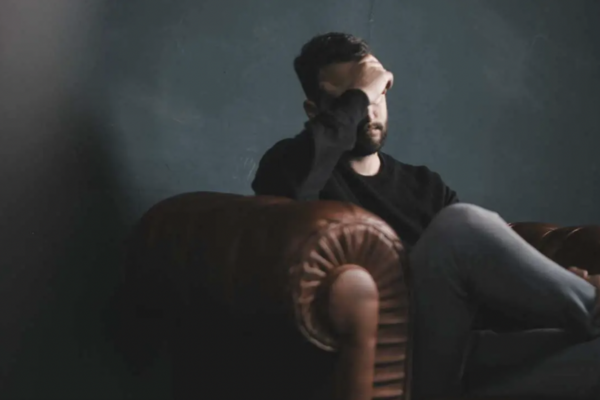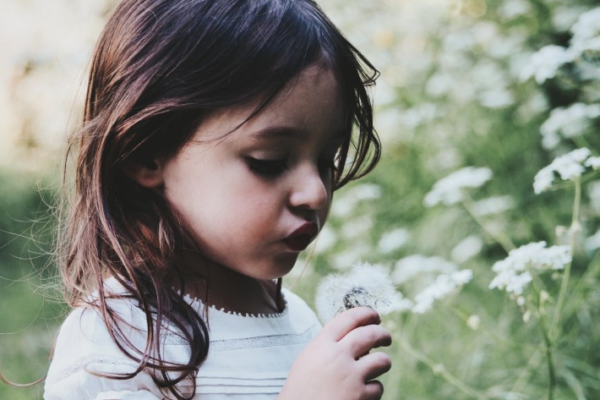
Helping Our Kids To Get Up Again – A True Story
One of the most difficult things for us parents to do is helping our kids to get up again when life and others knock them down.
Yesterday I did my best to do just that for one of my boys.
It was his first day back at school.
Late yesterday afternoon he asked to do some high-jump training, in preparation for sports day trials that were happening today.
So we pulled out 4 mattresses into the garden. A hosepipe suspended between chair tops formed a set-height high jump bar.
I must admit that he is a half-talent jumper. My coaching didn’t help much. But he persevered. He jumped like 100 times.
And didn’t clear the bar most times.
Red in the face, he lay on a mattress. He’d jumped his final jump. He started to cry.
Confused by what was happening, I tried to comfort him, but he ran off. At bed-time I lay next to him and asked him, ‘Why do you want so badly to make the high jump trials?’
‘Because I am tired of Athletics Day every year just running the race where everyone runs, and all I do is watch others in their events!’
‘Yes, but why do you want so badly to be in those races?’
That’s when the conversation turned.
‘Daddy, I had a terrible break-time at school today.’
‘What happened?’
Bit-by-bit, I managed to draw the story out of him….
At break-time he’d looked for his best friend. He found him engrossed in conversation with another friend, and stood there for a while, then moved on when he felt he hadn’t been taken in to that conversation.
The poor kid then wandered into shark-infested territory.
To make a long story short, a group of 6 guys, including a few guys who were his friends last year, were in boytjie mode and picked on him and then made it clear that he was not welcome to be in their group.
After telling me this, he went back to lambasting himself for how bad he was at high-jump.
I felt so bad for my son.
He is just not wired to break into a pack of guys, nor to climb up even halfway the dominance hierarchy. Not that I’d want him to, but it would be better than seeing a pack of guys turn on him like this.
Now the obsessive jumping made sense.
He was leaping for his sense of worthiness. Somehow he had pegged clearing that high-jump bar as his means to being accepted and acceptable both to himself and to others.
So what did I do?
This was a tender and teachable moment for my son. He needed a parent who could enter his pain and help him make sense of what happened.
I prayed under my breath that I could be what he needed.
In the next 20 minutes we had a long conversation. By the end my prayer seemed to have been answered, because the bond between him and me had intensified, and he felt a little braver to go back to school the next day.
I’d like to share with you what I told him. For the simple reason that it might be helpful to others who are coaching their kids through various disappointments and humiliations. I am sure I could have done or said better, but there might still be something of value here for fellow-parents whose hearts also break for the hardships their kids face, especially at the hands of other kids.
Before I gave him any counsel, I made sure to connect with his heart.
I did my best to not minimize or solve his pain.
‘Oh man, that is terrible. You must have felt so sad. Stuff like that happened to me when I was a kid. It’s just so horrible. So sorry you had to go through that. My heart aches for you.’
I learnt the importance of connecting with your child’s pain, from a parenting book by Brene Brown. She speaks of the need to just sit with hurting people in the darkness, rather than trying to patch them up or solve their problems. Let people feel what they feel.
Brene is totally right. Until we enter their pain subjectively, we can’t help them make sense of their pain objectively. Us adults should know by now that if we fail to empathetically listen, we only increase the person’s pain.
After about 5 minutes of me just acknowledging his agony, he seemed to be ready to try make sense of the pain. I changed gear, and started to talk with him about the various issues that seemed to be at stake in this particular scenario…
- The value of hardships
- Our tendency to take it personally when people are unkind to us
- The way we try to find worth in what we can do or whether people like us rather than who we are and whose we are
First, I took the gap to talk about the value of hardships.
The most common mistake us parents make is we try prepare the road for our child, rather than our child for the road.
Try as we may, the human experience is a very bumpy road, with at least a few tragedies along the way. So I said…
‘As a parent, I have to be honest. I want to bubble-wrap you so that you don’t have painful experiences like this. But as someone who has lived a few decades longer, I’d never be that cruel. Remember the story I have told you of the boy who cut the cocoon open because he was trying to make it easier for the butterfly to get out? Remember how the butterfly plopped out, wiggled its wings, and stayed there until it died. That’s because the boy made a mistake. The butterfly needed to struggle to form the strength to fly. No fight, no flight.
‘I know these experiences are painful, but God can use them to make us better people. Stronger people, and more caring people. For example, you now know what it feels like to be treated like those guys treated you, and you will be less likely to treat other people like that.’
Second, I encouraged him to not trust his own emotional interpretation of what had happened.
‘My boy, you said that the reason these guys treated you like this is because they didn’t like you. But can you see that you can’t be sure about that?
‘See, there’s a difference between why people do the things they do, and why you think they act like they do. Their was their action, and then there was your interpretation of their action.
‘But what if your interpretation was wrong?
‘As someone hearing the story, I think it is far more likely that these guys acted like that towards you, not because they didn’t like you, but because they wanted to be liked. It feels good to be in a group, but one of the ugly ways groups often act is that they break down others outside their group so that they can feel stronger as a group. People feel on the inside precisely because there are people who are kept on the outside.
‘What if you were just in the wrong place at the wrong time? What if the next kid who walked past them, whoever that kid was, would have been picked on too?
‘So let me ask you a question, what possible reasons are there for why those guys acted like that? You mentioned one – they don’t like you. I mentioned another – they were trying to be liked by each other, and were so focused on themselves that they didn’t care about how you felt. What other possible reasons?
He smiled and answered imaginatively, ‘Maybe it was because they had been hypnotized?’ We laughed.
‘My boy, you might be right about them not liking you, but I doubt it. There are other possibilities. And you must not assume that the first reason you can think of is the right one. Especially when your mind (and all of our minds tend to do this) thinks of the worst possible reason. We can cause ourselves so much needless pain by filling in the blanks with the most self-blaming reasons. Like you did to yourself today.’
Third, I spoke to him about identity and affirmed who he was.
‘Son, I can tell you one of the secrets to being liked. It’s to like people. When people, even mean people, get the feeling that you like them, they tend to like you back. I think of what Abraham Lincoln once said. ‘I don’t like that guy, I need to get to know him.’
‘I also bet you that at least some of those guys, if you catch them on their own, you will have a great connection with them.
‘But, having said that, being liked is not that important. And no matter what you do, there will always be people who don’t like you. So my question is, ‘How will you deal with people who don’t like you?
‘There are two ways, one that’s not wise and one that’s wise.
‘One way is to attach your identity to your achievements. In other words, tell yourself and others, ‘Look how good I am at this,’ and somehow this makes you feel worthy.
‘I think that’s what you are trying to do with this high jump – you’re telling yourself, ‘Look I can jump high. I can represent my house. I am somebody people need. I am somebody important.’
‘But the problem with attaching your worthiness to your achievements is that it will guarantee that you always feel superior to some, and inferior to others. Superior to those you can paint better than. Or inferior to those who can jump higher than you. And also, you will always be fighting for your worth. Every day for the rest of your life, you will have to keep on proving yourself to yourself and others through your efforts. You will be exhausted, like a hamster on a hamster wheel.
‘There’s another and better way to find your identity – as someone who is loved and who loves.
‘I know that you’re a mathematician and an artist. But that’s not really who you are – that is something you can do. Those are talents. They are not your worth. Who are you? You are someone who is loved. Loved by God. Loved by me and your mom and your brothers and sister. And some friends. And you are someone who can love and care for others. You’re a kind person.
‘As your dad, I really hope you do brilliantly in art and maths as you grow up, but even more than that, I hope you do well in loving your family and friends, and your own family one day.
‘Sure, do your best. Paint your best. Jump your highest. But don’t do that because you are trying to get worth. Do it because you already have worth. Never doubt the worth you have. In my sight. In God’s sight. Let it be in your sight too. If you have that sense of worth, when you fail or when people don’t like you, it will be painful, but it won’t go deep. You’ll be able to get up again much quicker.
I’d said all I wanted to say. Sharp little guy he is, he’d appeared to drink up every drop of it. I prayed for him, hugged and kissed him, and told him I loved him. ‘I am so proud of you. You’re doing so well as a human.’
He then said the treasured words – ‘I love you too daddy’ – there was an evident calm and strength in his voice that told me he was ready to get up again.
Comments
Also published on Medium.



